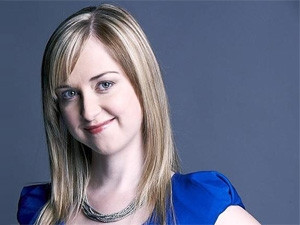
Research by global public relations group ECCO International has revealed 87% of journalists around the world find social media complements their day-to-day working activities.
However, more interactive methods of social media such as crowd-sourcing for research, asking interview questions, and liaising with PRs featured much lower on the breakdown of their daily use.
Over 1 100 journalists from 12 countries shared their social media habits and preferences. Facebook was rated as the most popular social media platform to source news by 86% of journalists surveyed, and Twitter was voted the second most popular tool at 61%.
While journalists are incorporating social media into their information-sourcing process, they remain cautious of the risks involved with the quality of news found on the sites. According to the survey, 77% of journalists surveyed agreed the fast pace of social media and lack of control over sources will pose a threat to the quality standards of journalism.
Realistically speaking
Former Eyewitness News reporter and news anchor (currently a journalist and news anchor for soon-to-be launched PowerFM), Andrea van Wyk, rates Twitter as the best social media source for news. But she warns that one has to be extremely careful about picking up unverified stories.
"Even seasoned journalists and major news organisations make mistakes in a bid to break a story first. Tweets about the health of a major figure such as former president Nelson Mandela must be treated with extreme caution. News organisations should verify news stories that break on social media with official sources before broadcasting, or face being left red-faced."
She adds that social media is a good source to follow what is happening during a major press conference or court case if one is unable to listen to the radio or watch television. "Hundreds of thousands around the world followed the Oscar Pistorius bail hearing on Twitter."
Social etiquette
Van Wyk says when journalists use social media they have to adhere to the same standards as the rest of the industry. "If you wouldn't say it on air or in print, you should not tweet it. Even when a reporter tweets from his/her personal account when they're off-duty, they are associated with their respective media organisations by default."
Van Wyk says inappropriate or defamatory comments could have serious repercussions. "A well-known police spokesperson has recently been fired for a controversial tweet he posted on his personal account. When you are a journalist or public official there is no such thing as 'my opinions are my own'.
"This doesn't mean you can never tweet what you think. But, it precludes you from things like swearing, racism, homophobia, chauvinism, jokes about rape, etc," she notes.
She says all the same rules and standards of quality journalism still apply on social media platforms. "The use of proper spelling and grammar when tweeting is important to maintain professionalism. It's sometimes very difficult when you have to tweet as fast you can during a press conference, but followers can sometimes be very pedantic about these kinds of things."
Van Wyk says while social media has opened up a new world of information sourcing to journalists, it does add to the workload. "One also constantly has to monitor [social media] to make sure you don't miss something."
Big brother
It's not only journalists that use social media to monitor what is going on in the world; government has admitted to doing the same. Yesterday, the department of state security was questioned in the media about whether it keeps an eye on what people are saying.
Acting head of communications at the department of state security, Brian Dube, says he was responding to questions raised about the Gupta report and media analysis. "It is important for the department to know the environment in which we operate. I think all government departments that work with the media would monitor it to see what is being said and what issues are being raised about the departments in question."
He says state security monitors all channels of the media and that includes social networks. "This is where people raise issues there and that's why it's important for us to look at the entire spectrum of the media."
He adds that the department has its own presence on social media. "We have a Twitter account (@StateSecurityRS) through which we engage with people and respond to the issues they are raising."
Dube says the department has a dedicated group of people that monitor the media, including Twitter and Facebook. "Our intention really is to use these platforms to communicate what we are about and also to look at what people are saying. If there's a need for us to respond, we do."
Share